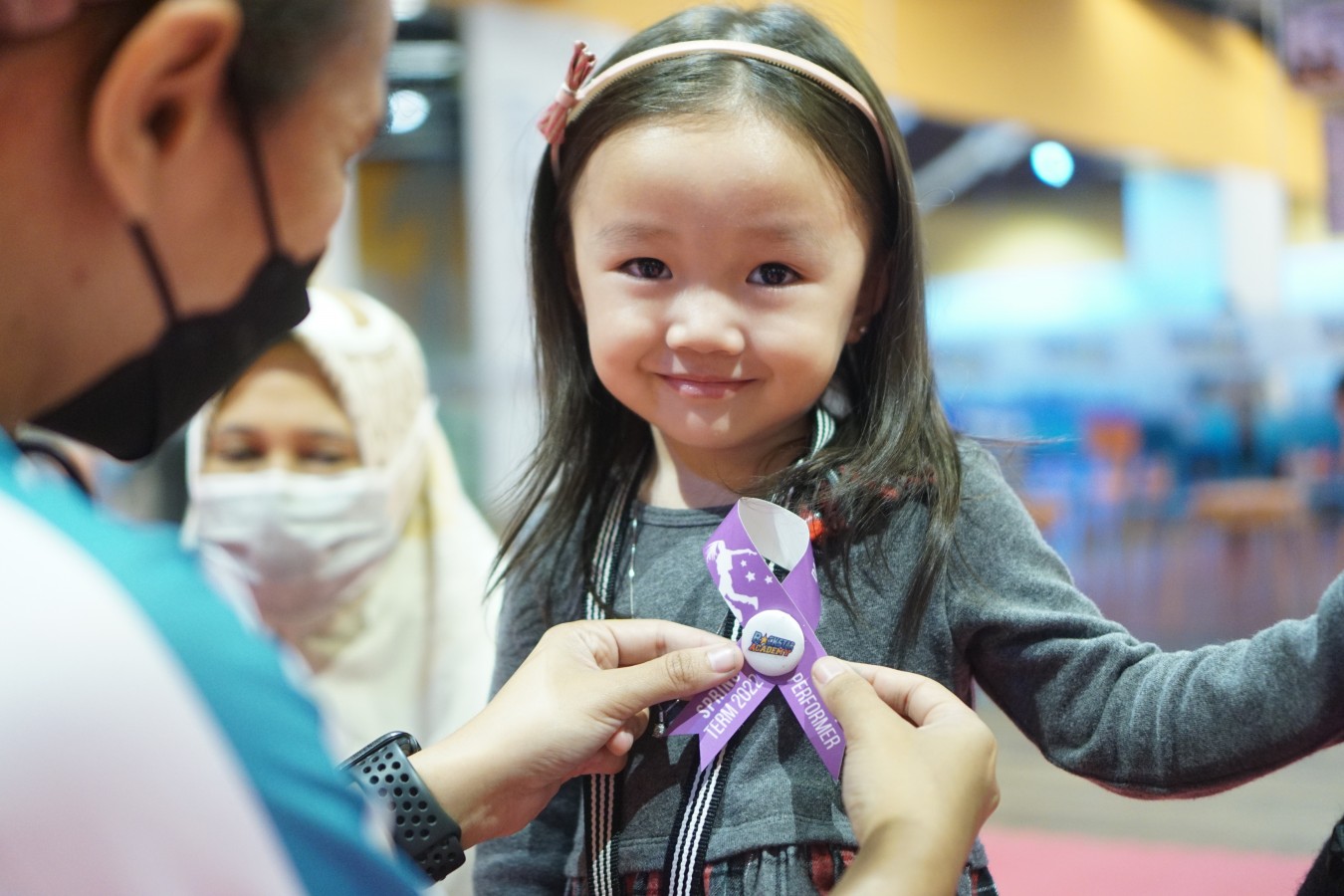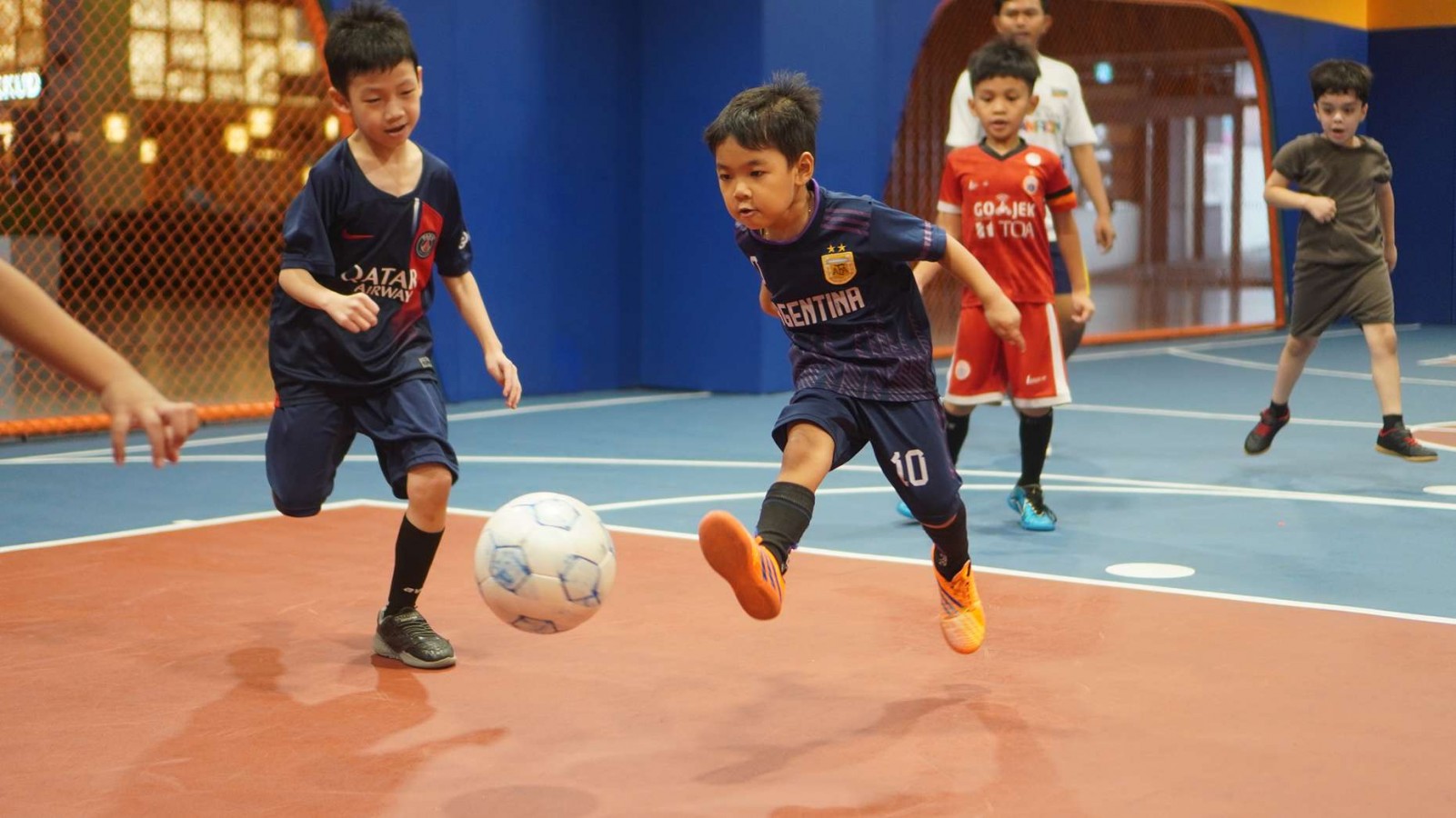10 Ways To Build Confidence In A Child: Parent Guide

As parents, one of our most important responsibilities is nurturing our children's self-confidence. Understanding how to build confidence in a child lays the foundation for their success and well-being throughout their lives. Confidence is not merely a trait, it's a skill that can be developed with the right support and guidance.
In this article, we explore effective strategies and approaches on how to build confidence in a child, empowering them to navigate the complexities of the world with assurance and resilience.
What Can Parents Do to Build Confidence in a Child?
Building confidence in a child is a multifaceted process that requires patience, understanding, and consistent effort from parents. Here are some strategies to help foster confidence in your child:
1. Delight in Your Child’s Discoveries as She/He Explores
When you show genuine enthusiasm and joy in your child's discoveries and explorations, it communicates to them that they are interesting, important, and loved.
Whether it's observing a bug in the garden, making a new drawing, or learning a new skill, your positive reactions affirm their sense of worth and encourage them to continue exploring and learning about the world around them.
2. Give Your Child Support in Trying New Things
According to Child Mind Institute, by offering support and encouragement when your child attempts new activities or challenges, you're sending the message that you believe in their intelligence and capabilities.
This support can come in various forms, such as offering guidance, providing resources, or simply being there to cheer them on. Even if they face setbacks or difficulties, your belief in them will help bolster their confidence to persevere and keep trying.
3. Be Specific About What Tasks You Want Your Child to Help With
Providing clear and specific instructions, such as asking your child to "Please pick up your blocks," rather than vague commands like "Let’s clean up the room," helps to empower them and reinforces their sense of competence.
By assigning specific tasks, you're giving your child a clear goal to work towards, which can enhance their sense of accomplishment when they successfully complete the task. This clarity also helps them understand their role and contribution within the family or household.
4. Recognize and be Specific About What Your Child Accomplished
Acknowledging and praising your child's specific achievements and efforts reinforces their sense of competence and boosts their confidence. Instead of generic compliments, such as "Good job," try to be specific about what they accomplished.
For example, saying "You did a great job tying your shoes all by yourself!" or "I'm proud of how well you read that story aloud" provides meaningful feedback that validates their efforts and encourages them to continue striving for success.
5. Be Honest with Praise
Children can sense when praise is insincere, and compliments that don’t feel earned may come across as fake. For example, telling a child they played an excellent game when they know they struggled can feel hollow. Instead, acknowledge the reality while offering encouragement. You might say, "That might not have been your best game, but I’m proud of how you didn’t give up." This approach shows you value their effort and resilience. Adding a vote of confidence, like "I know you’ll do even better tomorrow," reinforces their ability to improve and motivates them to keep trying.
6. Set a Positive Example
Children learn a lot by watching how adults handle everyday tasks. When you approach responsibilities like cooking, cleaning, or organizing with care and effort, it teaches them to value hard work. According to Kids Health article, if you consistently show pride in doing tasks well and avoid complaining or rushing, your child is more likely to adopt a similar attitude. For instance, when you take the time to wash dishes thoroughly and say, "I like how clean they look now," your child sees the importance of doing a job right and taking satisfaction in their work. This behavior encourages them to apply the same mindset to their chores, schoolwork, or other responsibilities.
7. Correct Without Criticism
The way you talk to children shapes how they view themselves. Negative comments like calling a child "lazy" can damage their self-esteem and do little to encourage better behavior. Instead, focus on guiding them with patience. If something needs improvement, highlight what they can do differently next time, and offer help if needed. For example, instead of saying, "You never clean up properly," you could say, "Next time, try putting the toys back in their box. Let me show you how it’s done." This approach not only avoids hurting their confidence but also provides a constructive path forward.
8. Build on Strengths
Based on Mayo Clinic Health System, every child has talents and interests that deserve attention. By recognizing what they excel at and enjoy, you can help them feel proud and confident. For example, if your child loves drawing, provide them with opportunities and materials to develop that skill further. Focusing on their strengths more than their weaknesses not only boosts their self-esteem but can also lead to improved overall behavior. Encouraging them in areas where they shine helps them feel valued and supported, creating a positive cycle of growth and confidence.
9. Encourage Them to Contribute
Even though kids might grumble at first, giving them responsibilities helps them feel important and connected to the family. Simple, age-appropriate tasks—like tidying up toys, helping with the dishes, or even picking up a younger sibling from a playdate—teach them that their contributions matter. These responsibilities show kids that they’re a valuable part of the household.
While homework and after-school activities are important, knowing that their family relies on them builds a unique sense of belonging and purpose. It’s not just about getting chores done; it’s about fostering their sense of responsibility and self-worth.
10. Create Opportunities for Success
It’s great for kids to face challenges but it’s equally important for them to experience success. When children succeed, they build confidence and the courage to take on bigger challenges in the future. You can help by encouraging them to participate in activities where they feel comfortable and capable.
For example, if your child enjoys drawing, signing them up for an art class can boost their confidence and prepare them to try new creative challenges later. Success in smaller, familiar areas gives kids the foundation to tackle bigger and more unfamiliar goals.
How Does Confidence Develop in Children?
Confidence begins to form from the moment a baby is born. Babies are naturally curious about the world around them. They reach out to touch, see, hear, and even taste anything they can get their hands on. This exploration helps them understand their surroundings and feel more connected to the world.
As children grow into toddlers and preschoolers, their curiosity grows even more. They start asking endless “why” questions to make sense of the world. Through these constant questions and interactions, young children begin to notice how their actions can cause things to happen. For example, they might realize that pressing a button makes a toy light up or that smiling at someone gets a smile in return. These repeated experiences help them see themselves as capable individuals who can influence their environment, which builds a sense of control and self-confidence.
When children start school, they often have high hopes and expectations for themselves. They might feel excited and confident about learning new things. However, as they interact with others and see how their skills compare, they begin to notice differences.
They may realize they excel in certain areas, like drawing or reading, but struggle with others, like math or sports. At the same time, they pick up on how teachers and classmates react to their efforts. Positive feedback can encourage them to try harder, while negative reactions or comparisons might make them hesitant to participate.
This stage is crucial because it shapes how children see their abilities and how willing they are to try new things, especially when they feel unsure or fear failure. A supportive environment that celebrates effort and improvement can help children maintain confidence, even when they face challenges.
Confidence grows through a mix of curiosity, experience, and encouragement. By nurturing a child’s sense of capability and celebrating their strengths while supporting them through difficulties, we can help them develop a strong foundation of self-assurance.
How to Build Confidence Based on the Child's Stage?
Understanding how to build confidence based on the child's stage of development is essential for effective parenting. Here's how to approach it based on different age groups:
1. Infant
During the infant stage, building confidence revolves around creating a secure attachment and fostering emotional connections.
Caring for your baby involves responding promptly when your baby cries, meeting their needs, and providing plenty of cuddles and smiles.
This responsive care communicates to your baby that they are valued and loved, laying the foundation for a sense of security and confidence in the world.
2. Toddler
Toddlers are exploring their independence and developing their sense of autonomy. To build confidence in toddlers, it's important to let them make choices within safe boundaries.
Give your child the chance to say no sometimes, respecting their preferences and autonomy. Allow them to explore their environment, but be ready to respond if they need you, providing reassurance and guidance.
Additionally, coach your child through tricky social situations, helping them navigate interactions with others with confidence and resilience.
3. Preschooler
At this stage, building confidence involves encouraging independence and competence. Give your child balanced feedback, praising their efforts and accomplishments while providing constructive guidance for improvement.
Show your child that you value them, regardless of whether they win or lose something, reinforcing their intrinsic worth.
Engage in activities like playing simple board games or doing household chores together, which encourage cooperation, problem-solving, and a sense of capability.
4. Primary school-age children
As children enter primary school, building confidence continues to focus on fostering resilience and a growth mindset. Give extra love and cuddles at the end of the school day, providing emotional support and affirmation.
Focus on the effort your child puts in and the courage it takes to try new or difficult things, emphasizing the process rather than just the outcome. Encourage your child to try again when things don’t go to plan the first time, teaching perseverance and resilience.
Provide opportunities for your child to try different activities and experiences, nurturing their curiosity and self-discovery.
Boost Your Child's Confidence Today!
Fostering confidence in a child is a vital task for parents, laying the foundation for their future success and well-being. So, let's continue to invest in our children's confidence, knowing that the belief we instill in them today will shape their tomorrow.
Preschool & Kindergarten lays the foundation for a child's lifelong learning journey, nurturing their cognitive, social, and emotional development during their most formative years. At Rockstar Academy, we go beyond traditional education by integrating sports and performing arts into our curriculum.
Our Sports & Performing Arts Academy offers a dynamic learning environment where children can explore their interests and talents while developing crucial social and physical skills.
Curious about what we offer? Try Rockstar Academy's free trial and witness firsthand the excitement and growth that await your child. Join us in shaping the future leaders and performers of tomorrow!
FAQ
How can I boost my child's self-confidence?
Boosting your child's self-confidence involves providing encouragement, praising their efforts, and celebrating their achievements. Additionally, offering opportunities for them to try new things and providing a supportive environment can help build their confidence.
How do you build confidence in early childhood?
Encourage exploration, offer praise and support, and provide opportunities for success through positive reinforcement and validation of efforts.



